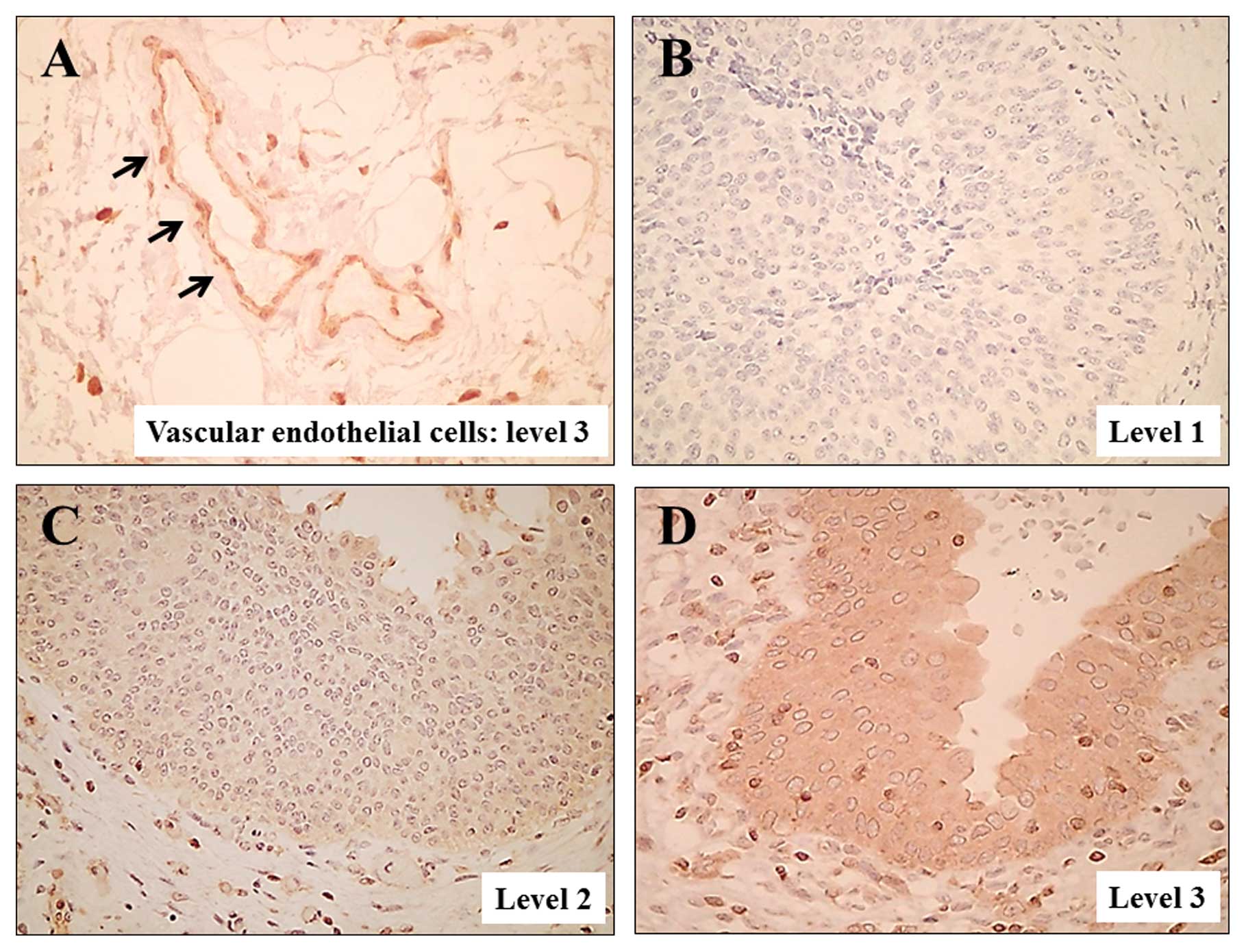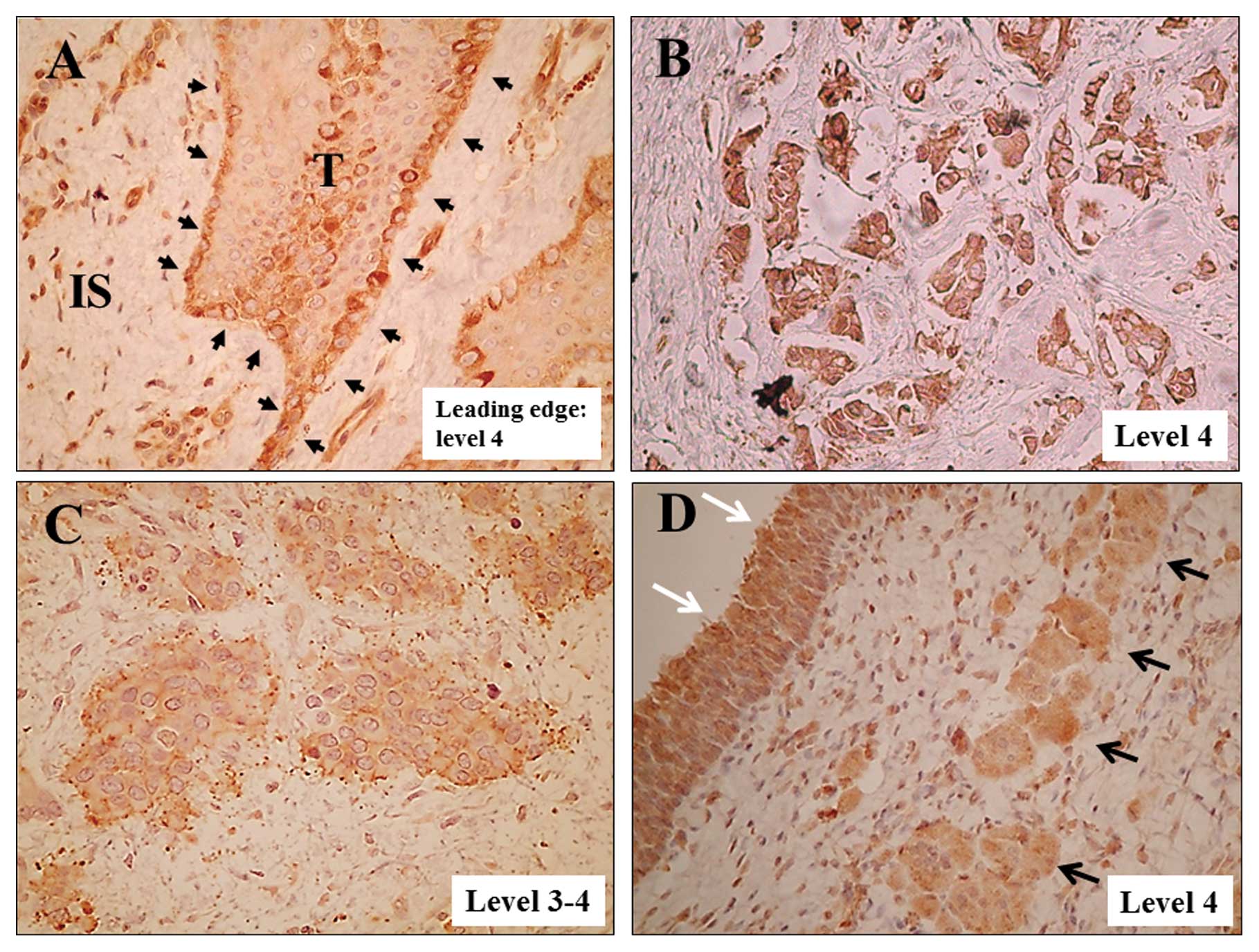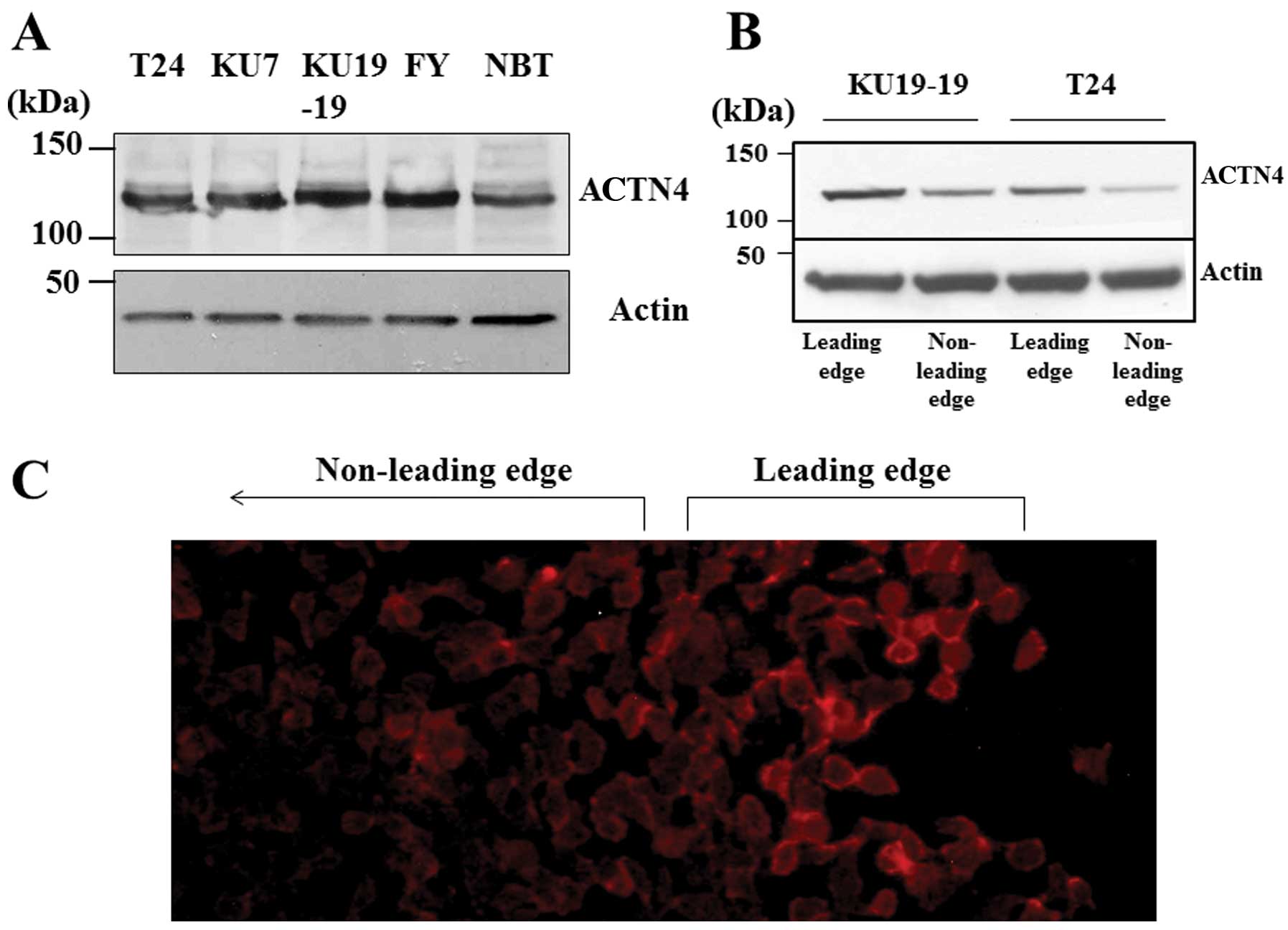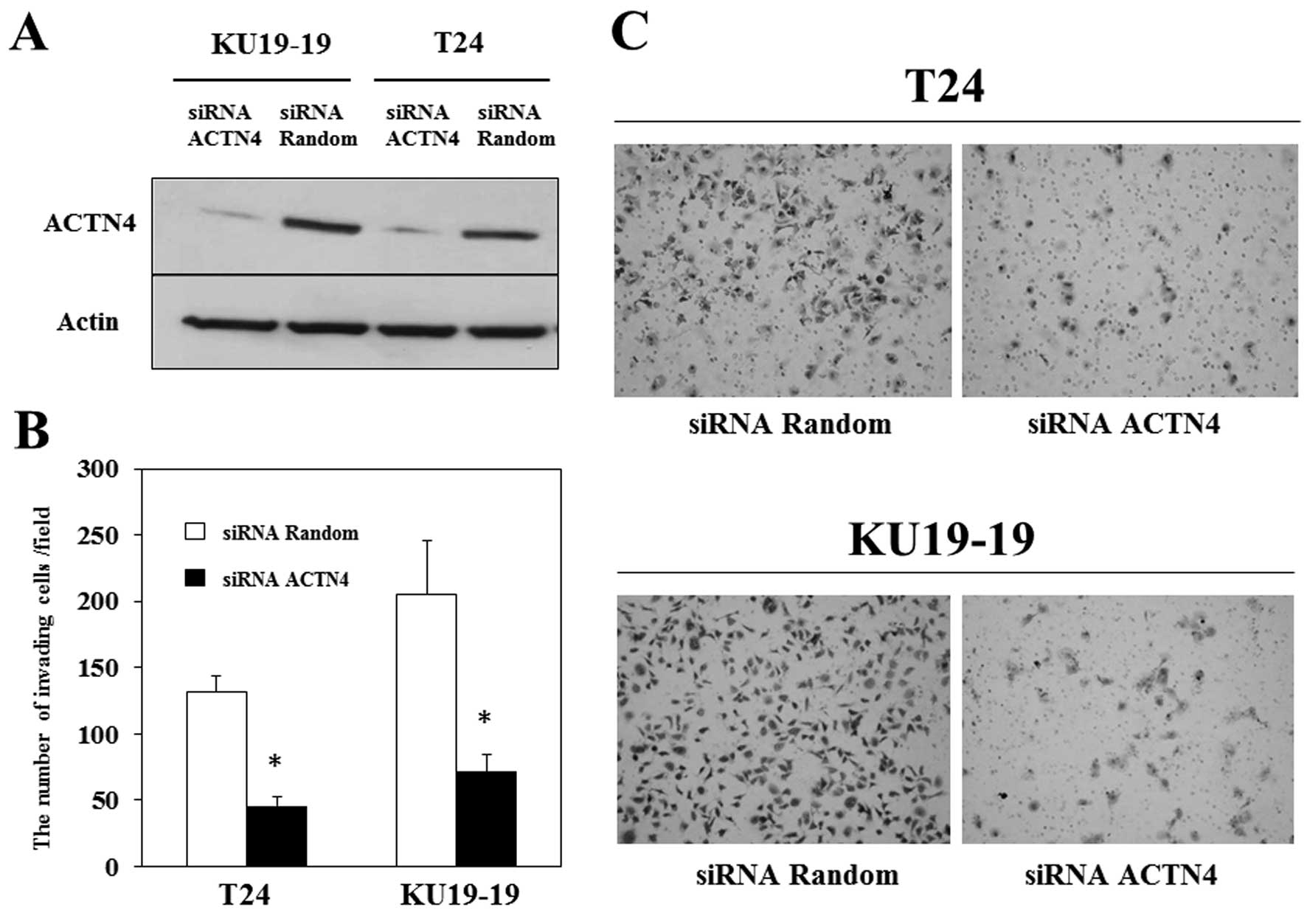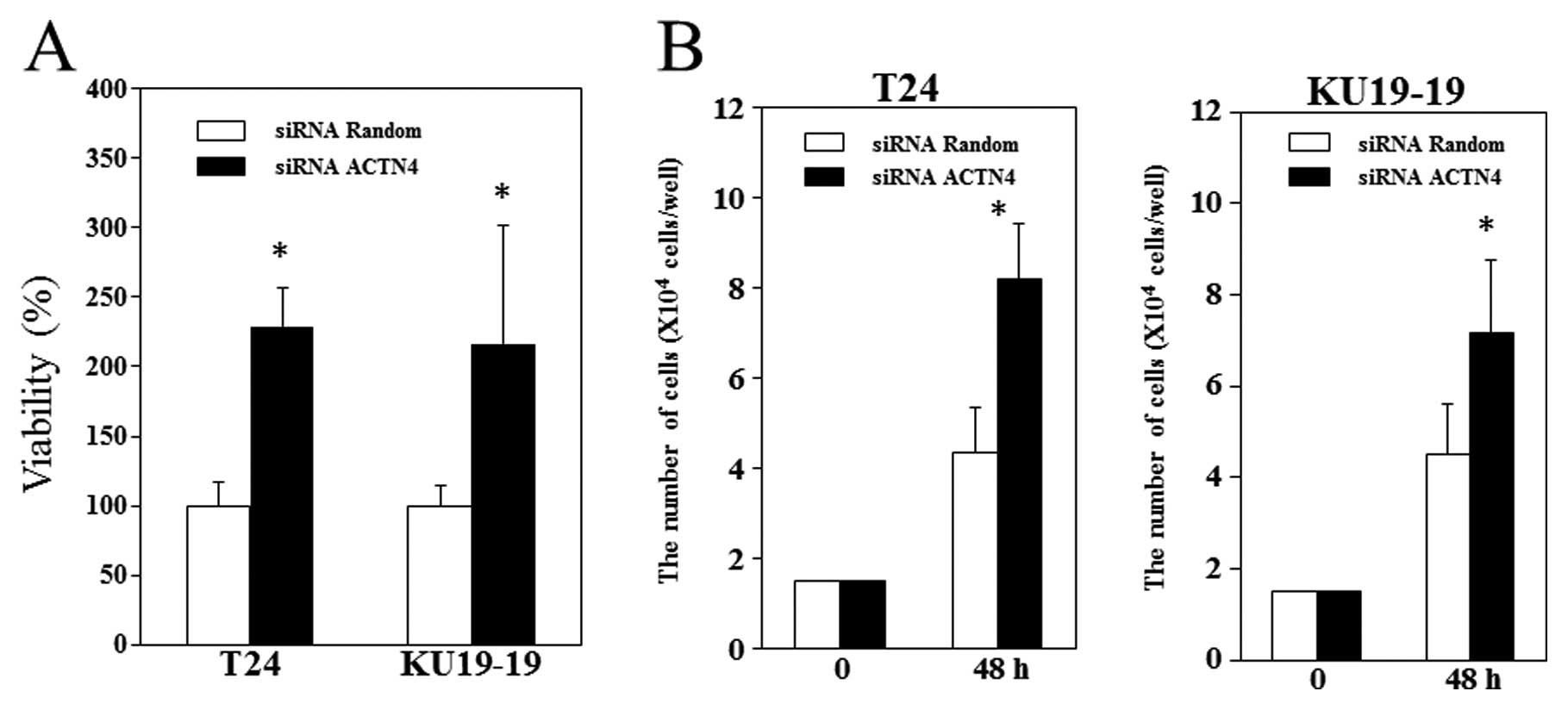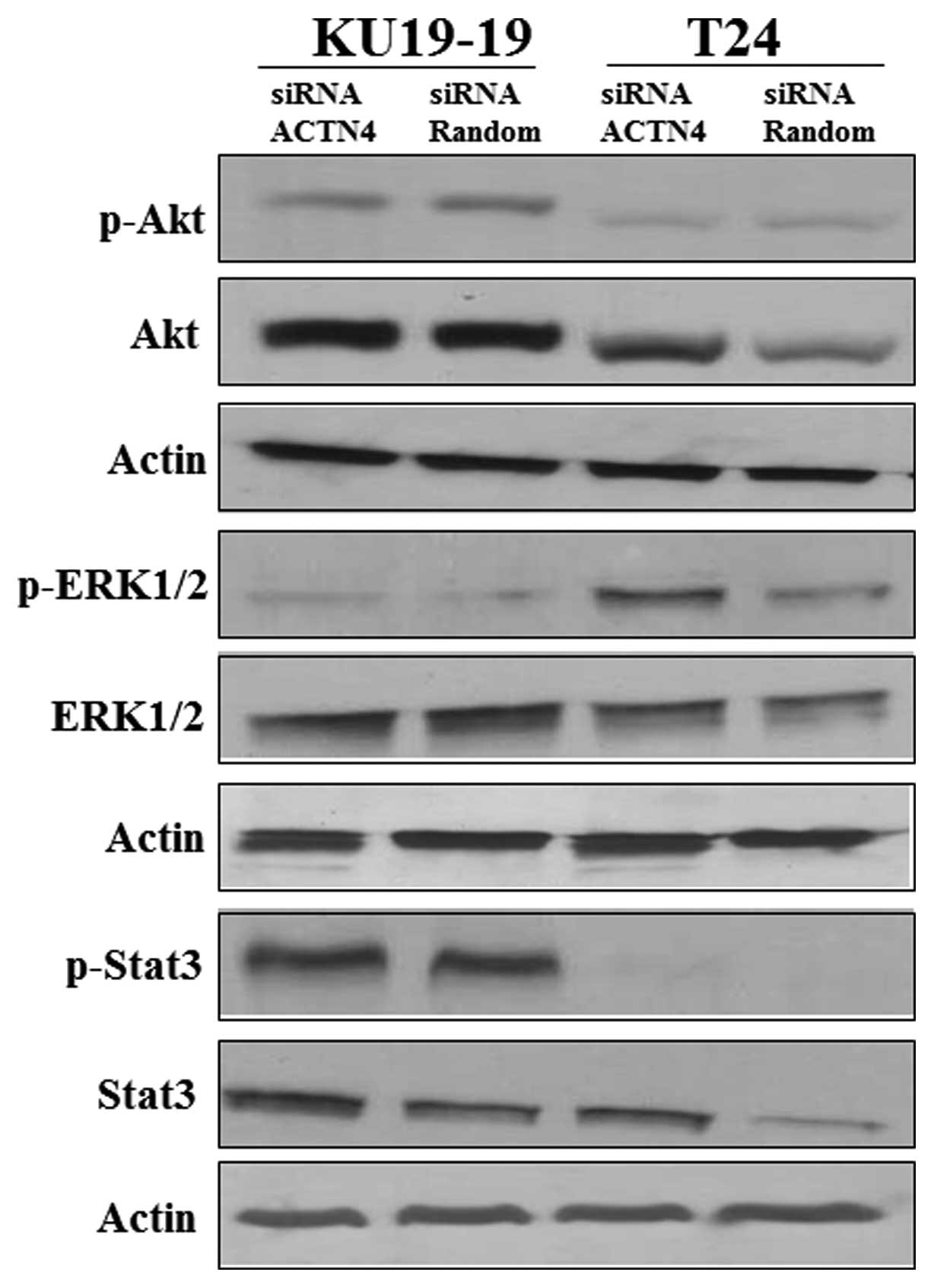|
1
|
Ghoneim MA, el-Mekresh MM, el-Baz MA,
el-Attar IA and Ashamallah A: Radical cystectomy for carcinoma of
the bladder: critical evaluation of the results in 1,026 cases. J
Urol. 158:393–399. 1997. View Article : Google Scholar : PubMed/NCBI
|
|
2
|
Stein JP, Lieskovsky G, Cote R, et al:
Radical cystectomy in the treatment of invasive bladder cancer:
long-term results in 1,054 patients. J Clin Oncol. 19:666–675.
2001.PubMed/NCBI
|
|
3
|
Takahashi A, Tsukamoto T, Tobisu K, et al:
Radical cystectomy for invasive bladder cancer: results of
multi-institutional pooled analysis. Jpn J Clin Oncol. 34:14–19.
2004. View Article : Google Scholar : PubMed/NCBI
|
|
4
|
Rosenberg JE, Carroll PR and Small EJ:
Update on chemotherapy for advanced bladder cancer. J Urol.
174:14–20. 2005. View Article : Google Scholar : PubMed/NCBI
|
|
5
|
von der Maase H, Hansen SW, Roberts JT, et
al: Gemcitabine and cisplatin versus methotrexate, vinblastine,
doxorubicin, and cisplatin in advanced or metastatic bladder
cancer: results of a large, randomized, multinational, multicenter,
phase III study. J Clin Oncol. 18:3068–3077. 2000.
|
|
6
|
von der Maase H, Sengelov L, Roberts JT,
et al: Long-term survival results of a randomized trial comparing
gemcitabine plus cisplatin, with methotrexate, vinblastine,
doxorubicin, plus cisplatin in patients with bladder cancer. J Clin
Oncol. 23:4602–4608. 2005.
|
|
7
|
Ito K, Fujita T, Akada M, et al:
Identification of bladder cancer antigens recognized by IgG
antibodies of a patient with metastatic bladder cancer. Int J
Cancer. 108:712–724. 2004. View Article : Google Scholar : PubMed/NCBI
|
|
8
|
Chen YT, Scanlan MJ, Sahin U, et al: A
testicular antigen aberrantly expressed in human cancers detected
by autologous antibody screening. Proc Natl Acad Sci USA.
94:1914–1918. 1997. View Article : Google Scholar : PubMed/NCBI
|
|
9
|
Scanlan MJ, Chen YT, Williamson B, et al:
Characterization of human colon cancer antigens recognized by
autologous antibodies. Int J Cancer. 76:652–658. 1998. View Article : Google Scholar : PubMed/NCBI
|
|
10
|
Honda K, Yamada T, Endo R, et al:
Actinin-4, a novel actin-bundling protein associated with cell
motility and cancer invasion. J Cell Biol. 140:1383–1393. 1998.
View Article : Google Scholar : PubMed/NCBI
|
|
11
|
Araki N, Hatae T, Yamada T and Hirohashi
S: Actinin-4 is preferentially involved in circular ruffling and
macropinocytosis in mouse macrophages: analysis by fluorescence
ratio imaging. J Cell Sci. 113:3329–3340. 2000.PubMed/NCBI
|
|
12
|
Wang SE, Shin I, Wu FY, Friedman DB and
Arteaga CL: HER2/Neu (ErbB2) signaling to Rac1-Pak1 is temporally
and spatially modulated by transforming growth factor β. Cancer
Res. 66:9591–9600. 2006.PubMed/NCBI
|
|
13
|
Yamagata N, Shyr Y, Yanagisawa K, et al: A
training-testing approach to the molecular classification of
resected non-small cell lung cancer. Clin Cancer Res. 9:4695–4704.
2003.PubMed/NCBI
|
|
14
|
Honda K, Yamada T, Hayashida Y, et al:
Actinin-4 increases cell motility and promotes lymph node
metastasis of colorectal cancer. Gastroenterology. 128:51–62. 2005.
View Article : Google Scholar : PubMed/NCBI
|
|
15
|
Koizumi T, Nakatsuji H, Fukawa T, et al:
The role of actinin-4 in bladder cancer invasion. Urology.
75:357–364. 2010. View Article : Google Scholar : PubMed/NCBI
|
|
16
|
Bubeník J, Baresová M, Viklický V, et al:
Established cell line of urinary bladder carcinoma (T24) containing
tumour-specific antigen. Int J Cancer. 11:765–773. 1973.PubMed/NCBI
|
|
17
|
Tachibana M, Miyakawa A, Nakashima J, et
al: Constitutive production of multiple cytokines and a human
chorionic gonadotrophin beta-subunit by a human bladder cancer cell
line (KU-19-19): possible demonstration of totipotential
differentiation. Br J Cancer. 76:163–174. 1997. View Article : Google Scholar
|
|
18
|
Kikuchi S, Honda K, Tsuda H, et al:
Expression and gene amplification of actinin-4 in invasive ductal
carcinoma of the pancreas. Clin Cancer Res. 14:5348–5356. 2008.
View Article : Google Scholar : PubMed/NCBI
|
|
19
|
Horiguchi A, Sumitomo M, Asakuma J, et al:
Leptin promotes invasiveness of murine renal cancer cells via
extracellular signal-regulated kinases and rho dependent pathway. J
Urol. 176:1636–1641. 2006. View Article : Google Scholar : PubMed/NCBI
|
|
20
|
Yamamoto S, Tsuda H, Honda K, et al:
Actinin-4 gene amplification in ovarian cancer: a candidate
oncogene associated with poor patient prognosis and tumor
chemoresistance. Mod Pathol. 22:499–507. 2009. View Article : Google Scholar : PubMed/NCBI
|
|
21
|
Hayashida Y, Honda K, Idogawa M, et al:
E-cadherin regulates the association between β-catenin and
actinin-4. Cancer Res. 65:8836–8845. 2005.
|
|
22
|
Hatakeyama H, Kondo T, Fujii K, et al:
Protein clusters associated with carcinogenesis, histological
differentiation and nodal metastasis in esophageal cancer.
Proteomics. 6:6300–6316. 2006. View Article : Google Scholar
|
|
23
|
Nikolopoulos SN, Spengler BA, Kisselbach
K, Evans AE, Biedler JL and Ross RA: The human non-muscle α-actinin
protein encoded by the ACTN4 gene suppresses tumorigenicity
of human neuroblastoma cells. Oncogene. 19:380–386. 2000.
|
|
24
|
Hara T, Honda K, Shitashige M, et al: Mass
spectrometry analysis of the native protein complex containing
actinin-4 in prostate cancer cells. Mol Cell Proteomics. 6:479–491.
2007. View Article : Google Scholar : PubMed/NCBI
|
|
25
|
Jasavala R, Martinez H, Thumar J, et al:
Identification of putative androgen receptor interaction protein
modules: cytoskeleton and endosomes modulate androgen receptor
signaling in prostate cancer cells. Mol Cell Proteomics. 6:252–271.
2007. View Article : Google Scholar
|
|
26
|
Teramoto H, Malek RL, Behbahani B,
Castellone MD, Lee NH and Gutkind JS: Identification of H-Ras,
RhoA, Rac1 and Cdc42 responsive genes. Oncogene. 22:2689–2697.
2003. View Article : Google Scholar : PubMed/NCBI
|















